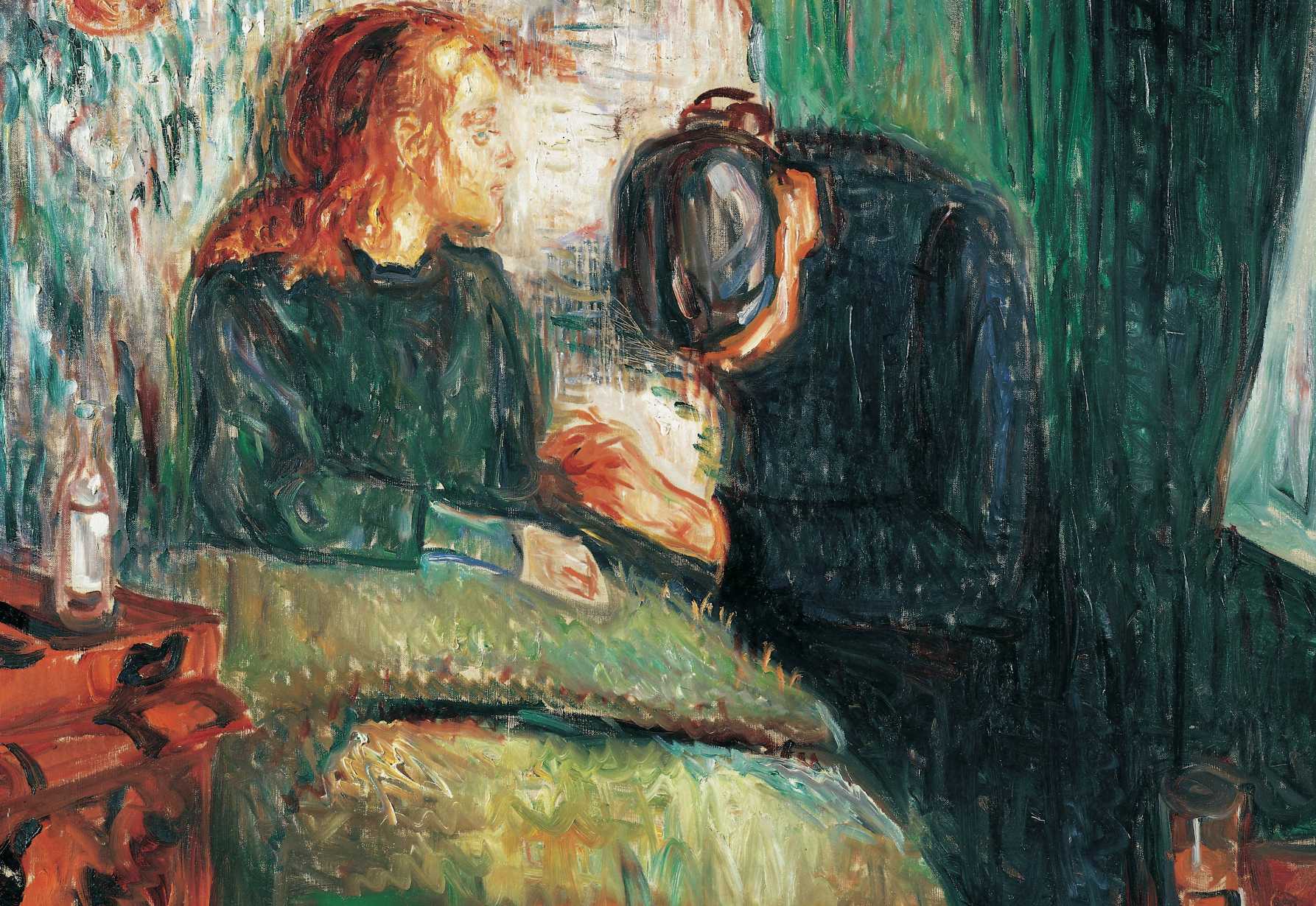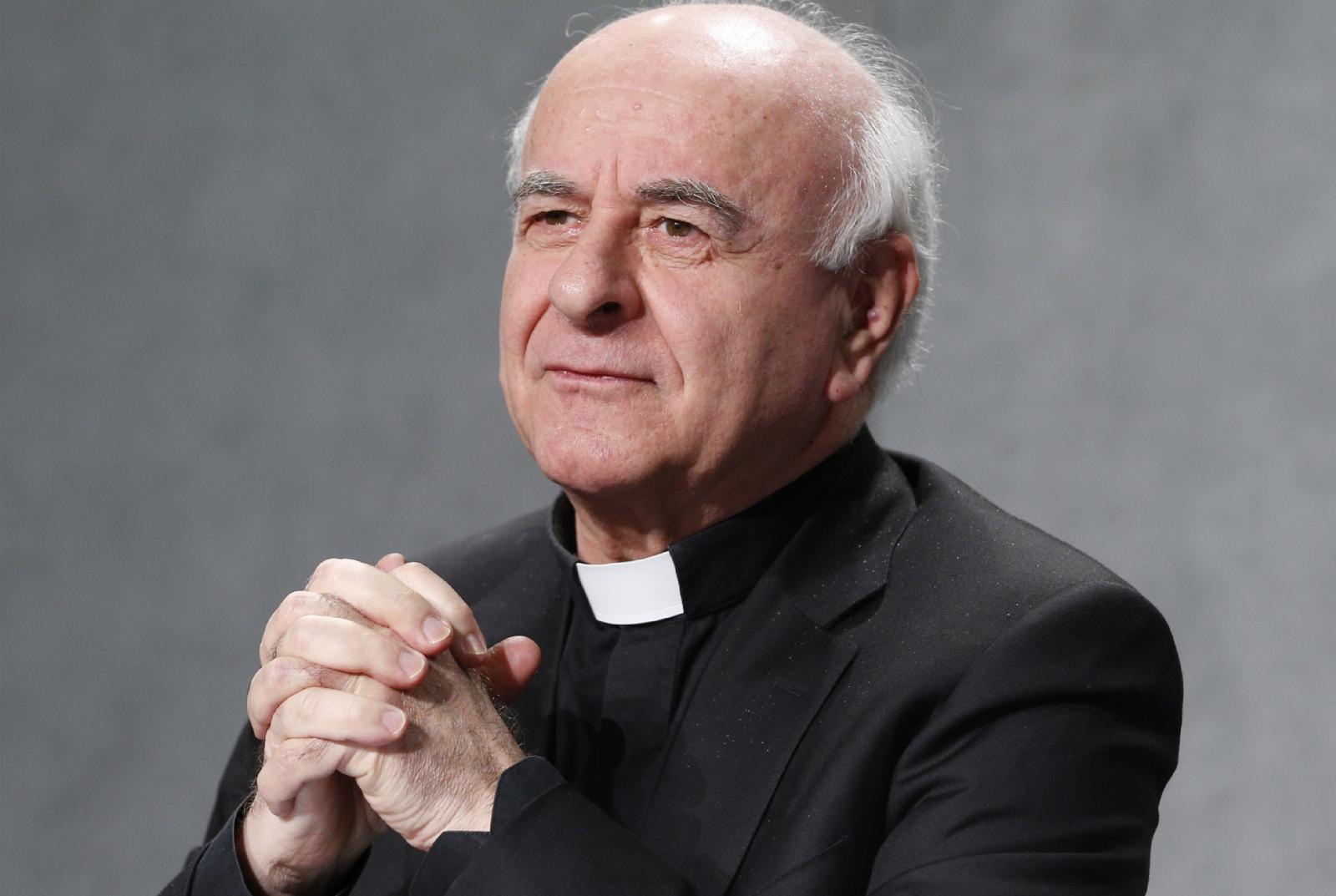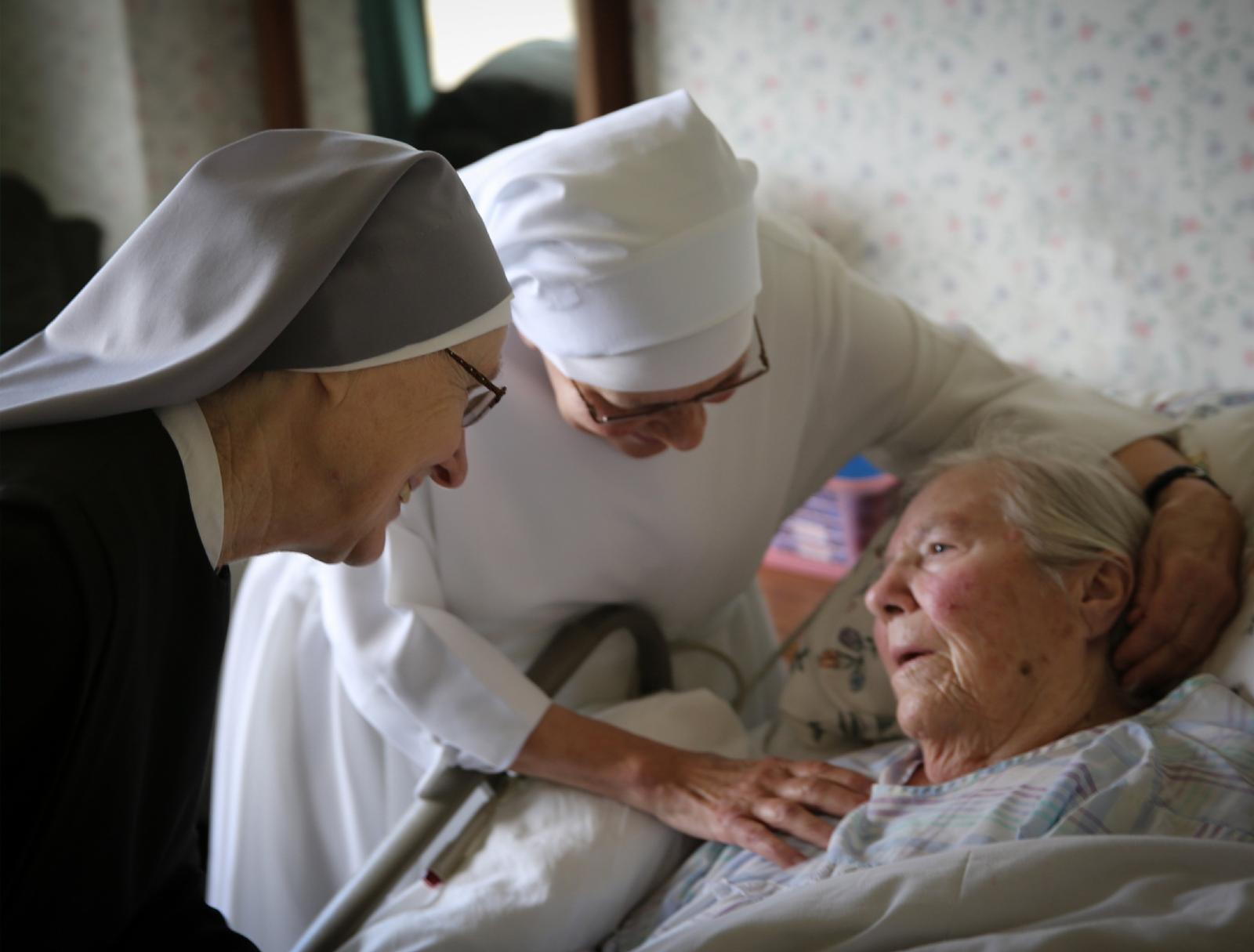Words matter: Vatican publishes 'lexicon' on end-of-life issues to aid debate
The Pontifical Academy for Life released a new booklet to aid in the public debate on end-of-life issues. The booklet, published only in Italian July 2, offers clear definitions and the Catholic Church's teaching on bioethics with the aim of clearing up confusion and fostering informed dialogue.
 Carol Glatz
Carol Glatz

A painting titled, "The Sick Child," by Edvard Munch from 1885. (CNS photo/CC by 4.0, Wikimedia Commons)
VATICAN CITY (CNS) -- Public debate on end-of-life issues seems more widespread every time states and nations consider new laws dealing with bioethics and because of social media, the president of the Pontifical Academy for Life said.
The increased participation of individuals and groups in those debates is to be welcomed because facing the final stages of life is an important topic that affects everyone, Archbishop Vincenzo Paglia said in the introduction of a new booklet from the papal academy.
However, precisely because the debate has spread so widely, there are often errors, confusion and gaps in people's understanding of some end-of-life terminology, which can then hamper constructive discussion and resolutions, he wrote.
That is why the academy decided to create a short "lexicon" of important terms used in many end-of-life discussions to help Catholics better navigate an often complex debate.
Written by a group of members of the academy, the 80-page booklet hones in on 22 terms, providing: easy-to-understand, accurate definitions based on the latest science; the theology behind the Catholic Church's position on end-to-life issues; a look at the evolution of church teaching on the matter; and current Italian law regarding end-of-life issues. Published only in Italian, it was released by the Vatican publishing house July 2.
The academy distributed the booklet to every bishop in Italy, telling them it was especially suited for priests, deacons, religious and those working or consulting in the healthcare field.

The goal of the lexicon, Archbishop Paglia wrote, is to clear through "the jungle of intricate issues" and present a clear, correct usage of the terminology so that those interested in end-of-life discussions can have a common ground of shared meaning before embarking on the more difficult task of understanding others' different positions and objectives.
A key feature of the booklet is the way the issues are presented through the lens of Catholic understanding and are connected by several fundamental tenets, such as the Christian meaning of life, death, freedom, responsibility and care.
One tenet is freedom as a gift of God who lets humanity "freely decide in our life," Archbishop Paglia wrote. "But freely does not mean arbitrarily, rather (it means) responsibly" and always in relation to other people and the world at large.
"To be responsible toward oneself," he wrote, "is always a way to be responsible -- or irresponsible -- toward others. That is the way we human beings live until the very end."
Among the issues covered are: the "vegetative state" and coma; cremation; palliative care and deep sedation; suffering and pain management; euthanasia and assisted suicide; intensive care, including for terminally ill infants; determination of death; organ donation; life-sustaining care; artificial nutrition and hydration; "aggressive" medical treatment and its suspension; ordinary and proportionate means of preserving life; and advanced directives including a template of a living will to customize with the guidance of a priest.
The papal academy experts who compiled the book drew from many sources, relying heavily on teachings by St. John Paul II and Pope Francis as well as numerous documents issued by the then-Congregation and now Dicastery of the Doctrine for the Faith, which are all available online.
While there is nothing new, per se, in the booklet, it provides a concise, faith-based explanation of end-of-life issues in the context of current laws, trends and "secular" attitudes.
For example, concerning euthanasia, the booklet warns its legalization could lead to a multitude of dangers beyond the intentional violation of human life: It jeopardizes the role of the doctor whose mission is to care for and preserve the lives of their patients, it could lead to reduced support for assisting those dying a natural death, and it infringes on the freedom of people who may feel pressured to pursue euthanasia to avoid being a burden on their family or society.

The aim of medical treatment and care for those facing the end of life, it said, includes mitigating pain in a way that allows the patient to be aware, communicate, and cultivate and deepen relationships.
In fact, it is not true that pain is "celebrated" as "a path to redemption" in the Christian faith, the booklet said. It is both a professional duty and an act of Christian charity for medical staff to help alleviate suffering.
The underlying theme throughout the booklet is the importance of upholding and strengthening the relationship and dialogue between patient and healthcare providers, families and society.
It stressed that there is a way to properly respect and protect the autonomy and freedom of patients to make decisions about end-of-life care that does not isolate them in a subjective bubble, it said.
Autonomy always exists in relation with others, it said. The patient must be in dialogue with medical professionals who carefully study the individual's unique case and fully inform the patient and family so as to pursue a path of shared decision-making.
"The communication between a doctor and patient -- and with family members -- is an element of decisive importance in the development of ethical choices concerning the changes in treatment," it said.
Open, honest and informed dialogue must also be the basis for those taking part in today's debates and discussions concerning end-of-life issues, Archbishop Paglia said in the booklet's introduction.
Only "heartfelt and in-depth dialogue," not "prepackaged and partisan ideologies, can lead to authentic shared solutions," he wrote. Dialogue by all sides, religious or not, must be driven by a sincere quest to respect the human being, he added.



